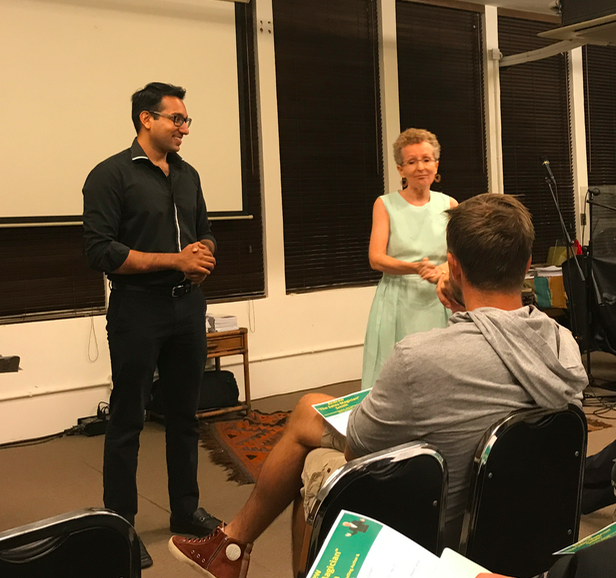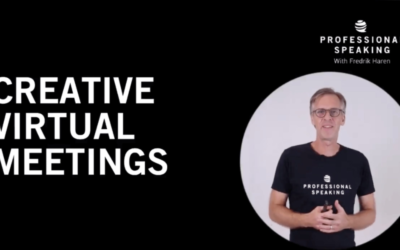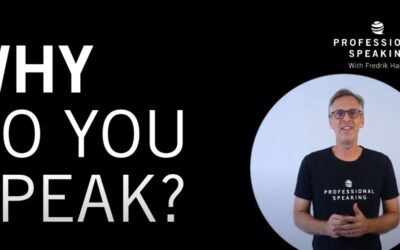
According to the dictionary the word “improvise” has two meanings:
1) create and perform (music, drama, or verse) spontaneously or without preparation: he invited actors to improvise dialogue | [ no obj. ] : he was improvising to a backing of guitar chords.
2) produce or make (something) from whatever is available: I improvised a costume for myself out of an old blue dress.
Notice the description of the first meaning. It says “spontaneously” or “without preparation” (!) The distinction between the two words in fundamental to understand as a speaker.
I am a strong believer that a speaker should never go up without being prepared. To “wing it” as a speaker is not something to be proud of.
But I am at the same time a big fan of speakers being spontaneous. The ability to react to something someone in thge audience says, or something that happens during the speech is very, very valuable.
So one meaning of the word “improvise” should be avoided while the other meaning of the word “improvise” should be encouraged.
Let me go a big deeper.
I recently received feedback from a speaker I given a coaching session and she wrote to me that she had prepared too much, something that had hindered her from being her best.
She wrote: “I felt I was perhaps “too” prepared and some of the jokes didn’t come across the way it would when I normally do speak.I know in training/lecturing I tend to make my participants or students laugh at the silly jokes I make but its usually quite unplanned. “
I wrote back to her: “I do not think you should prepare less (God, the world doesn’t need more unprepared speakers!) but you should be more confident in LEAVING your prepared speech and improvise more and be spontaneous.”
So I guess that means that a great speaker is a speaker who goes up on stege “WITH preparation but with a willingness to be spontaneous” …
If you approach improvised speaking like then it is a good idea to learn how to become better at improvising, at being better at being spontaneous.
Last night I attended a session by Asia Professional Speakers Hong Kong, a network of professional speakers who meet to make each other better. One of the speakers were Kay Ross, a speaker and trainer in improve, who had a session on improvisation for speakers.
I learnt a lot, and after the speech I reflected over how the technique of “yes, and” (where a improv actor is “forced” to go with what ever the other actor on stage just said) could be used to handle hecklers or people interrupting your speech to disagree with you.
The best parts of many speeches is instances when the speaker left the script and was spontaneous. But being good at being spontaneous is a skill. A skills that can be practiced – dare I say: be prepared to improvise…




